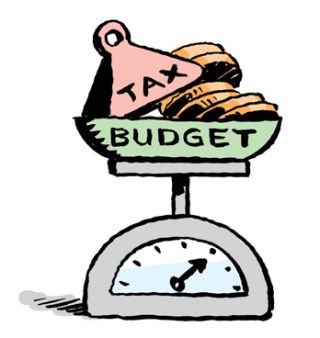Increase in overall tax take necessary

Ireland’s overall level of taxation will have to rise significantly in the years to come in order to address current service and infrastructure deficits and meet the changing needs of a growing and ageing population in the medium to long term. This needs to be done in a fair manner while Government delivers on its Programme for Government commitment to implement progressive budgets.
As we face into a period of global trade uncertainty, planning is key to ensure we are well prepared for any downturn in public finances, and that we are ready for the future budgetary challenges that an ageing population and increasing dependency ratio present. Demographic change is already having a significant impact on the demand and delivery of social services and infrastructure, and this is set to expand in the years ahead. Work must begin now on planning for a sustainable tax-take and wise investment of available funds into infrastructure and services to embed resilience.
Increasing Ireland’s overall tax take
Social Justice Ireland is proposing a new tax take target on a per capita basis. This would minimise some of distortionary effects that have emerged in recent years in terms of GDP and GNP.
- A new tax-take target on a per capita basis should be set by Government. This target should increase each year in line with growth in nominal GNI*.
- Social Justice Ireland proposes that Ireland’s overall level of taxation should reach a level equivalent to approximately €26,800 per capita in 2025 terms.
- This target could yield an additional €26 billion per annum.
- Increasing the overall tax take to this level would require a number of changes and reforms to the tax base and the current structure of the Irish taxation system.
- Gradually increasing the overall taxation revenue to meet this new target would represent a small overall increase in per capita taxation levels and one that is unlikely to have any significant negative impact on the economy.
- Reaching that level would provide a lot more recurring sustainable revenue for the state to invest in public services and improved living standards for all.
- A substantial proportion of current total taxation revenue is vulnerable to disappear rapidly in the context of international taxation and trade reforms and from any sudden economic downturn. This vulnerability underscores the need for a broad based and sustainable taxation system. The first step should be a new tax take target on a per capita basis.
Prioritise social investment
Under-investment in our social infrastructure remains a major challenge. Inadequate levels of investment in housing, healthcare infrastructure, energy, water, public transport and education are having negative social and economic impacts and means that standards are far below what citizens expect from the State.
Our failure to provide the infrastructure to keep pace with population growth has resulted in a situation where housing has become a critical issue, our energy infrastructure is unfit for current and future needs and our health and education services are under enormous pressure.
Investment in appropriate supply, rather than an over-reliance on subsidies must be a key direction of policy. Maintaining current housing targets will not address the current shortfall of housing stock, pent up demand or future housing need. Government should set a target of 20 per cent of all housing stock to be social housing by 2040, with substantial progress to be made in the next five years.
Changing demographics and population growth is also putting pressure on our health and care services. Ageing populations represent increased longevity, and this is a success story that is to be welcomed. But it must also be planned for and managed. Significant increases in the older population means there will be increased numbers living with long-term illness or disability. This must be planned for using an appropriate model of healthcare and care.
Government must deliver on its commitment to implement progressive budgets. As it approaches its first budget, this process must start with the benchmarking of social welfare rates to average earnings which requires a €25 weekly increase in social welfare rates in Budget 2026.